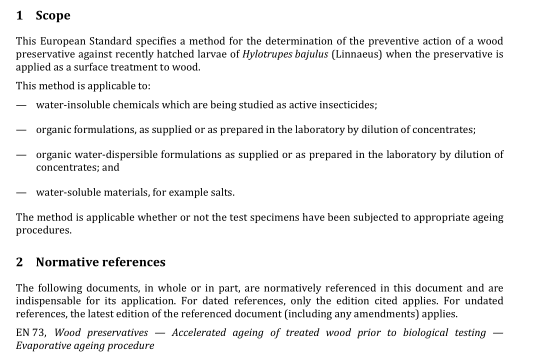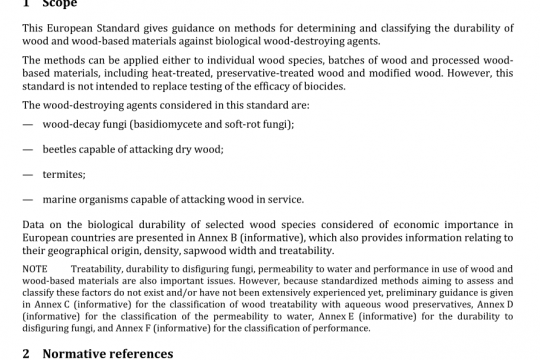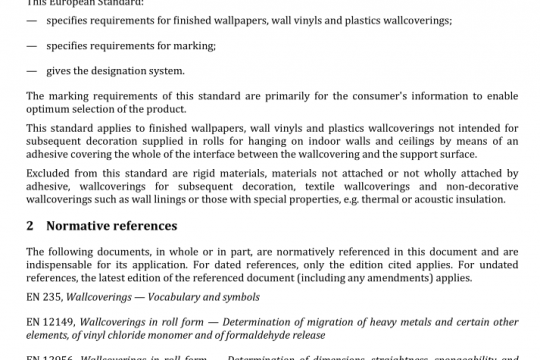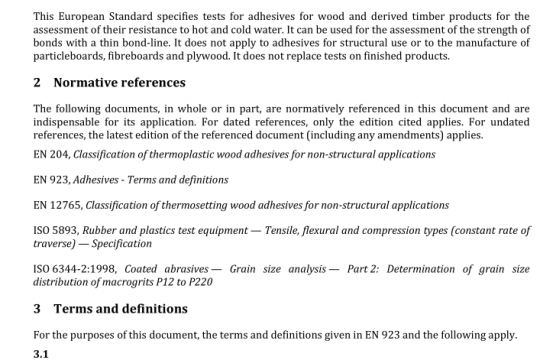BS ISO 17885 pdf free download
BS ISO 17885-2015 pdf free download.Plastics piping systems Mechanical fittings for pressure piping systems – Specifications.
5.4 Lubricants and/or greases
Lubricants and/or greases may be used to assist in joint assembly. The fitting manufacturer shall provide evidence that the lubncant and/or grease shall not have a deleterious effect on the performance of the component parts of the fitting likely to be in contact or of the connecting piping system.
NOTE Requirements or GAS can be found in EN 377J4J
6 General characteristics
6.1 Appearance
When viewed without magnification, the internal and external surfaces of fittings shall be smooth, clean and shall have no scoring, cavities and other surface defects to an extent that would prevent conformity to this International Standard.
No component of the fitting shall show any signs of damage, scratches, pitting, bubbles, blisters, inclusions or cracks to an extent that would prevent conformity of the fittings to the requirements of this International Standard.
6.2 Colour
The colour shall conform to the requirements given in the relevant product standards.
For W applications, plastic body material other than black shall be tested in accordance with ISO 7686,
the percentage of light which passes through the wall of the fitting shall be less than or equal to 0,2 %.
6.3 Ultraviolet protection
The fitting parts, which are exposed to ultraviolet radiation and affected by ultraviolet radiation, shall be protected against ultraviolet radiation.
6.4 Threads
Joints made pressure•tight by the mating of the threads shall conform to ISO 7-1 and fastening pipe threads to ISO 228-1.
6.5 Transition fittings to metal pipes
Where a fitting Is connected to a metal pipe, the joint shall fulfil at least the performance requirements of the plastic pipe systems. The fitting part connected to the metal pipe shall fulfil the dimensional requirements of the corresponding metal product standards.
6.6 Combined fittings
Socket fusion ends, spigot ends, electrofusion sockets or others, when included in mechanical fittings, shall conform to the relevant product standards.
6.7 Twisting
The fitting shall not induce twisting of pipes during assembly.
7 Geometrical characteristics
The mechanical fittings shall be manufactured with such dimensions and within such tolerances as will permit their use with pipes conforming to the corresponding product standard.
Stiffencrs are recommended for thin wall pipes (e.g. polyethylene pipes) for GAS applications. If stiffeners are used, they shall comply with Annex B.
In order to avoid excessive pressure losses in straight-line fittings, any internal support used in internal/external grip fittings should cause minimal narrowing of the internal cross-section of the fitting. The minimal internal bore diameter shall be stated by the manufacturer in his technical file.
8 Physical characteristics
8.1 Evaluation of the MRS value of the plastic material
For plastic materials intended to be pressure-bearing and subject to continuous stress, either in hoop or tension, determine the O’LPL value in accordance with ISO 9080. Data provided by the compound manufacturer may be taken into account. Classify the material (MRS) and calculate the design stress in accordance with ISO 12162.
NOTE Plastic materials used to manufacture screw caps, clamping rings and supporting rings do not need to he classified.
8.2 Verification of long-term behaviour of the plastic material
The long-term behaviour of the plastic material of the fitting body shall be verified by a type test either on an injection-moulded pipe or an extruded pipe specimen with an outside diameter, in accordance with the material application, not less than 32 mm produced in accordance with ISO 1167-2 from the same material as that of the fitting body. In case of dispute an injection-moulded pipe specimen shall be used. The test pressure for the plastic sample is given in Formula (1):
where
Pt IS the test pressure of the sample (bar);
PN is the nominal pressure of the fitting (bar);
tF is the test stress of the fitting material (MPa);
a5 is the design stress of the fitting material (MPa).
The test parameters given in Annex C shall be followed, using test procedure given in ISO 1167-1. No failure shall occur during the test.
8.3 Specific material related characteristics of fitting materials
Table 5 shows the minimum characteristics of the fitting materials to be tested. The details of the requirements for parts are given in Annex D.BS ISO 17885 pdf download.




